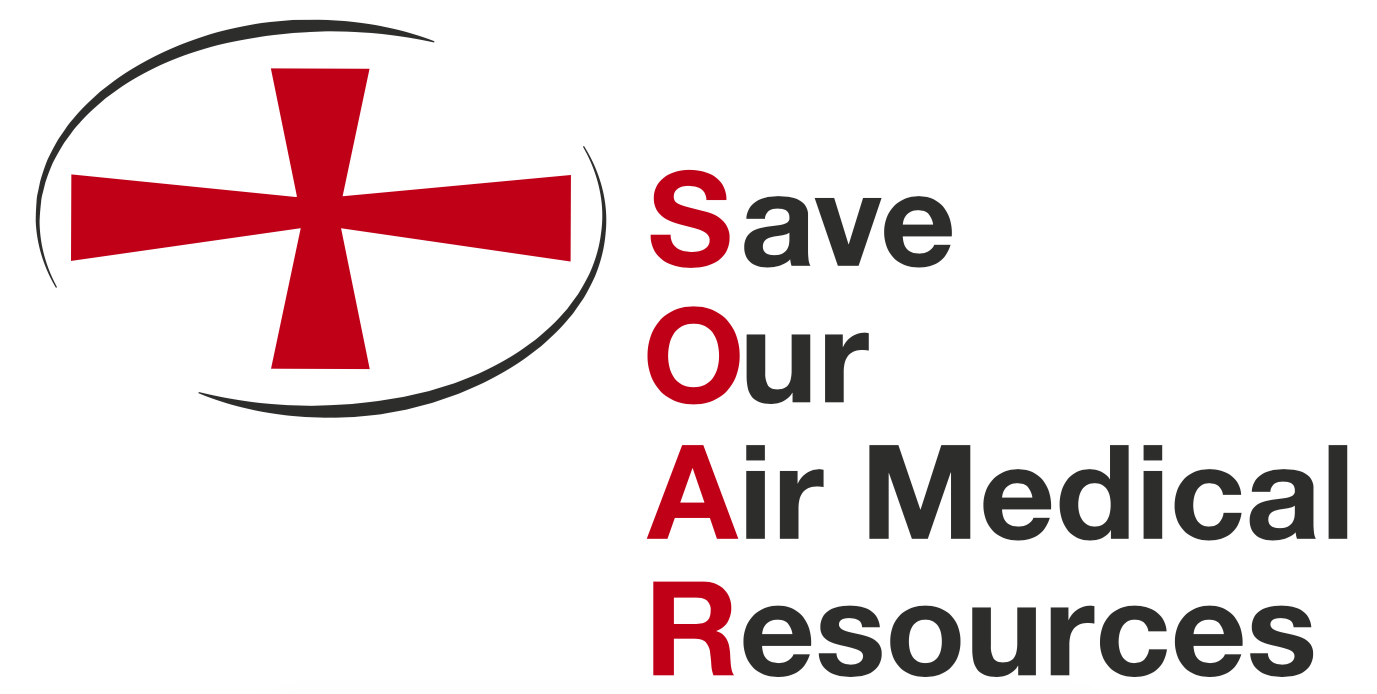SOAR Campaign commends Senate Veterans Affairs Committee Chairman Jon Tester, Ranking Member Jerry Moran (R-KS), House Appropriations MilCon/VA Subcommittee Chairman John Carter (R-TX), House Veterans Affairs Committee Chairman Mike Bost (R-IL) House MilCon/VA Subcommittee Member Susie Lee (D-NV), and the Department of Veterans Affairs for their leadership
(Washington, D.C.) – The U.S. Department of Veterans Affairs (VA) has officially delayed implementation of critical cuts to reimbursement rates for emergency air medical transportation services until 2029. This decision allows more time for key stakeholders to collaborate with the VA and Congress in developing a long-term solution that safeguards access to emergency care for millions of Americans, particularly rural Veterans.
“SOAR thanks Chairman Tester, Ranking Member Moran, Chairman Carter, Chairman Bost, Representative Lee, and others for their tireless efforts and leadership to preserve access to emergency services for Veterans across the country. We commend the VA for recognizing the devastating impact these cuts would have had on our nation’s Veterans and taking decisive action,” said PJ Amartey, spokesperson for Save Our Air Medical Resources (SOAR) Campaign. “This four-year delay provides a much-needed window for developing a workable solution that ensures the continued availability of lifesaving air medical transportation services.”
Originally set to take effect in February 2025, the VA’s rule would have drastically reduced reimbursement rates for air ambulance providers, aligning them with the outdated Medicare rates that currently cover less than half the actual cost of emergency patient transport. These deep cuts would have led to the closure of many air ambulance bases, disproportionately affecting Veterans in rural areas who depend on these services during critical medical and mental health emergencies.
For over a year, Representative John Carter (R-TX), Senator Jon Tester (D-MT), Senator Jerry Moran (R-KS), Representative Michael Bost (R-IL), and other members of Congress, in collaboration with Veterans Support Organizations (VSOs), have led bipartisan efforts to protect access to air ambulance services. The bipartisan VA Emergency Transportation Access Act, introduced by Senator Tester, seeks to ensure the VA conducts a rigorous review process and consults with Veterans and healthcare providers before making any cuts to reimbursement rates. VSOs, including The American Legion, Disabled American Veterans, Jewish War Veterans, Paralyzed Veterans of America, and Wounded Warrior Project, have voiced their support for the bill, testifying before Congress to express how important this legislation is for protecting access to care. This legislation is critical to protecting air medical services that are often the only lifeline for Veterans and rural communities facing medical crises.
Despite the decision to delay cuts, it is imperative that Congress advance the VA Emergency Transportation Act so that a date-based resolution to reimbursement rates may be reached and the possibility of air ambulance base closures no longer lingers and threatens healthcare access for millions.
“Rural America is grappling with a healthcare care crisis,” added Amartey. “Rural hospitals closures have left over 85 million Americans, including 4 million Veterans, without nearby emergency care. Air ambulance services have become an indispensable lifeline, and the VA Emergency Transportation Access Act is a practical, bipartisan solution that guarantees no Veteran is left behind when they need urgent medical care. This delay allows us the opportunity to advocate for this bill and secure fair reimbursement rates for the providers delivering this crucial service.”
For more information on the potential impact of the VA’s planned cuts and ongoing efforts to preserve access to air medical services, click HERE.
###
Save Our Air Medical Resources (SOAR) is a national campaign dedicated to preserving access to emergency air medical services across the country, especially in rural communities.
PJ Amartey, Spokesperson, SOAR Campaign
media@soarcampaign.com

